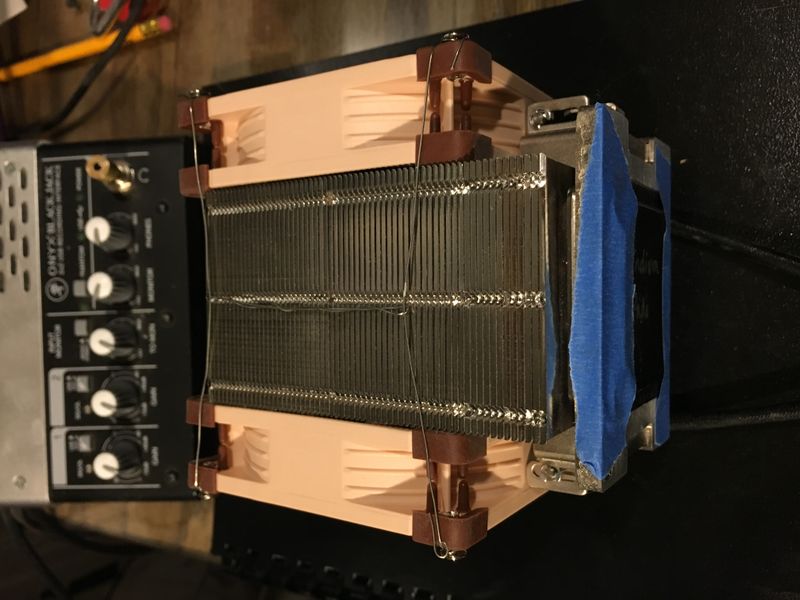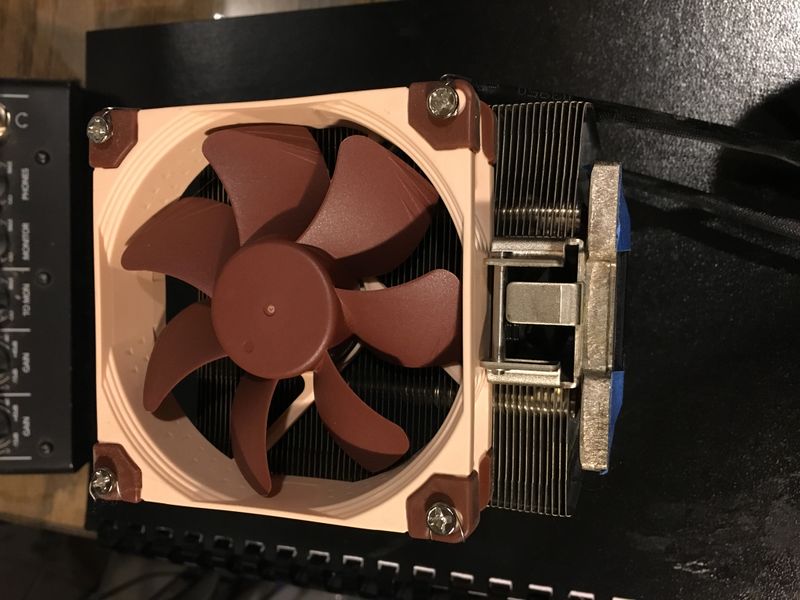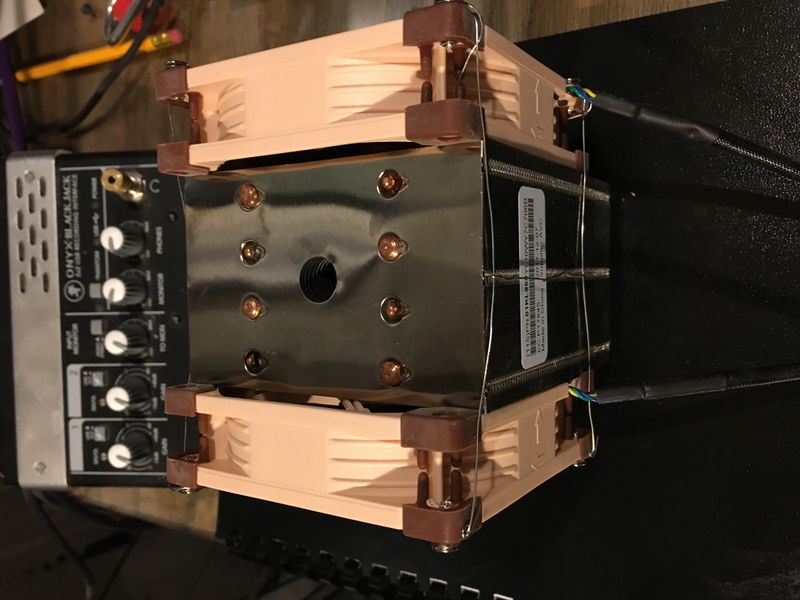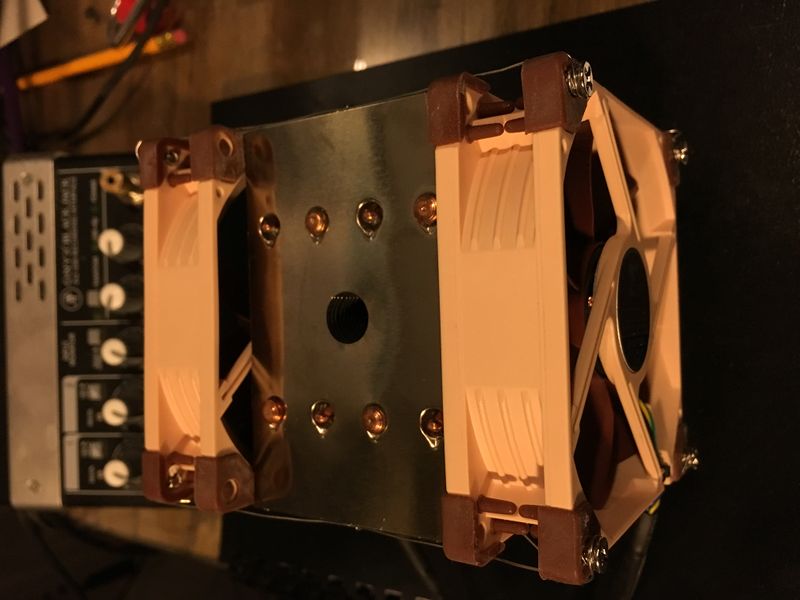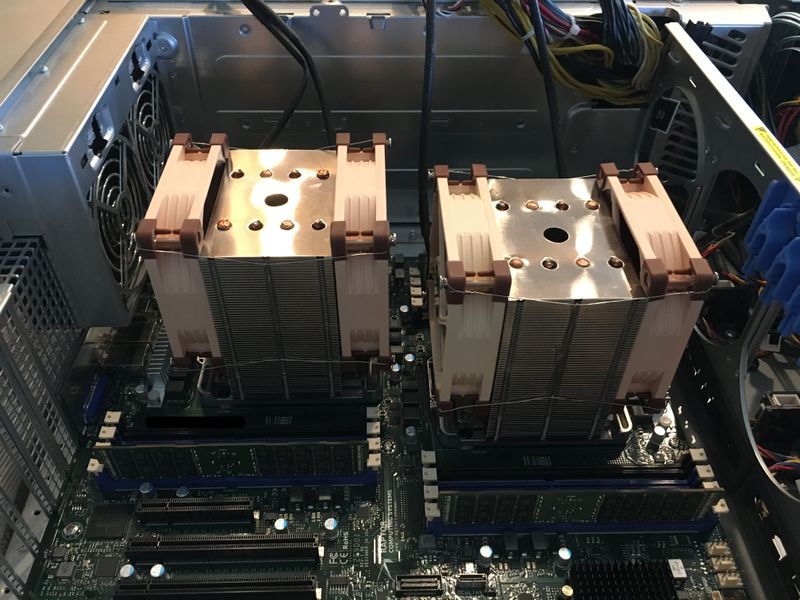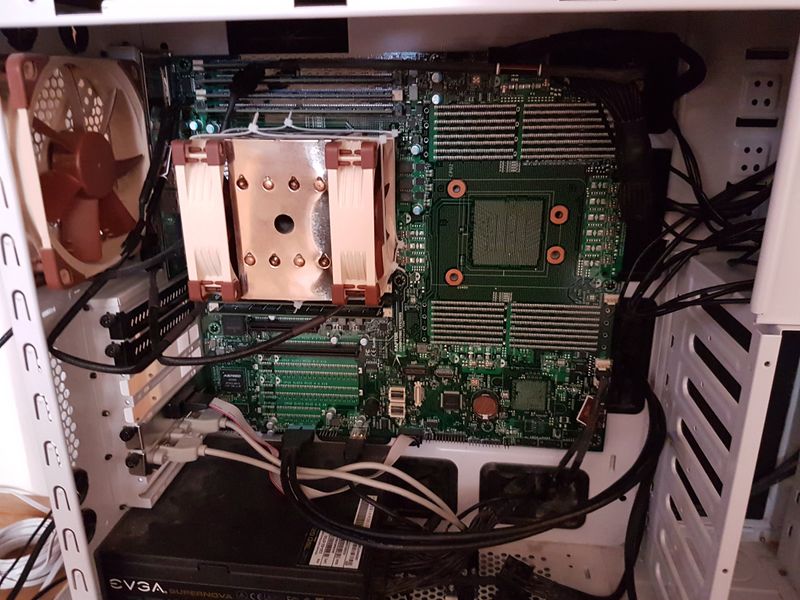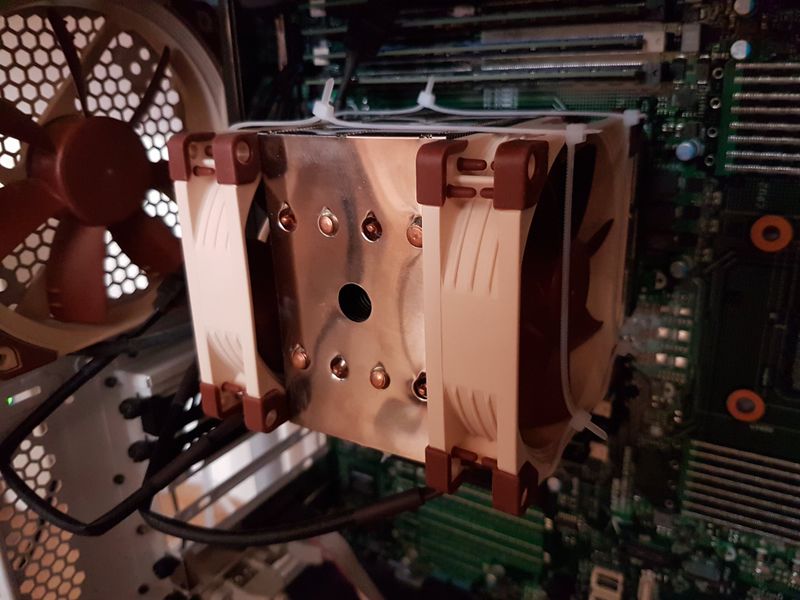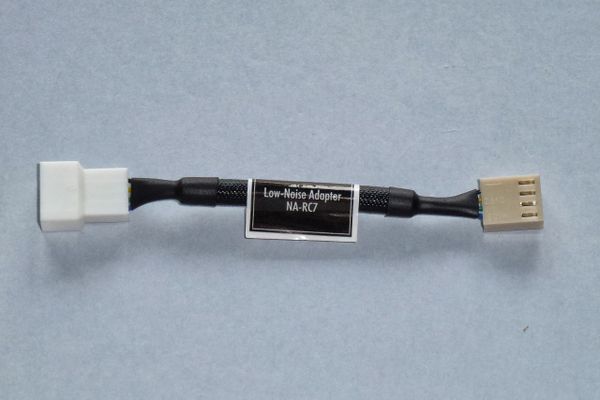Difference between revisions of "Dual 92mm fan CPU"
| Line 1: | Line 1: | ||
| − | = Dual 92mm Fan CPU Cooling = | + | = Cooling Dual 92mm Fan CPU Cooling = |
It is recommended to choose a high quality fan for this modification, with specs at least close to equivalent to the tested fans. Also, ensure adequate airflow through the chassis, which is true always, even with the default cooling. It is also important to attach the fans in a push-pull configuration, where one of the fans pushes air through the heatsink fins and the other fan takes in hot air and blows it out towards the back of the case. This is achieved by orienting both fans in the same direction. The "base" (grille) side of the fan is the exhaust, while the "blade" side of the fan is the intake. See pictures for proper configuration. | It is recommended to choose a high quality fan for this modification, with specs at least close to equivalent to the tested fans. Also, ensure adequate airflow through the chassis, which is true always, even with the default cooling. It is also important to attach the fans in a push-pull configuration, where one of the fans pushes air through the heatsink fins and the other fan takes in hot air and blows it out towards the back of the case. This is achieved by orienting both fans in the same direction. The "base" (grille) side of the fan is the exhaust, while the "blade" side of the fan is the intake. See pictures for proper configuration. | ||
Revision as of 21:03, 19 April 2019
Contents
Cooling Dual 92mm Fan CPU Cooling
It is recommended to choose a high quality fan for this modification, with specs at least close to equivalent to the tested fans. Also, ensure adequate airflow through the chassis, which is true always, even with the default cooling. It is also important to attach the fans in a push-pull configuration, where one of the fans pushes air through the heatsink fins and the other fan takes in hot air and blows it out towards the back of the case. This is achieved by orienting both fans in the same direction. The "base" (grille) side of the fan is the exhaust, while the "blade" side of the fan is the intake. See pictures for proper configuration.
The fans should both be connected to the CPU fan connector using a 4-pin Y cable. The tested Noctua NF-A9 PWM bundles this cable, for other fans you might have to purchase it separately.
Fans Used
- Noctua NF-B9 PWM
- Tested by q66 on single CPU 18-core system. Reports lower max temp and lower noise levels vs stock, under stress testing. Achieves max turbo boost. Performs similarly to NF-A9 PWM with the bundled low noise adapter (LNA), as the NF-B9 PWM is 1600 RPM, while the NF-A9 PWM is 2000 RPM and 1550 RPM with LNA. Unlike NF-A9 PWM, it does not have builtin rubber anti-vibration pads, which does not seem to make much actual difference. You are unlikely to find this fan (as NF-A9 PWM is the successor) unless you already have them at home.
- Noctua NF-A9 PWM
- Tested by q66 on a single CPU 18-core system. Stress testing reveals 54°C on hottest core with default speed and 30°C in idle; with LNA, 32°C in idle and 65°C hottest core under prolonged stress testing (sensors reporting maximum CPU power draw/overclock). Therefore, it is safe to use the LNA, as 65°C is well within headroom for maximum turbo boost.
- Tested by nashimus on dual 18 core system, SC747TG-R1400B-SQ chassis.
- CPU0 runs ~10C hotter than CPU1
- Recommend against using LNA in 2x18 core system. CPU0 hit 85C in stress testing with LNA.
- Satisfied with acoustic and thermal performance without using LNA, for now. Max of 67C on CPU0 in stress testing.
LNA (Low Noise Adapter)
Attaching The Fans
(Noctua NF-A9 Pictured, for both setups; NF-B9 looks nearly identical)
